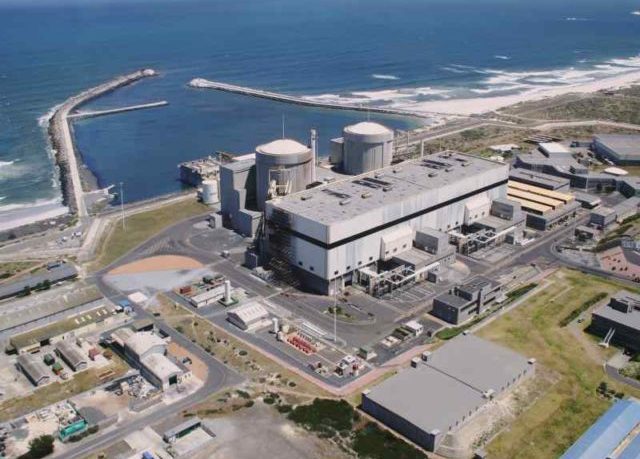- As the spent fuel storage at Koeberg nuclear plant will reach full capacity by April, South Africa’s power utility, Eskom, has applied for approval for new dry storage casks.
- Eskom told Reuters in a statement that “The Koeberg spent fuel pool storage capacity is currently over 90% full. [These] pools will reach [their]capacity by April 2020.”
Koeberg produces about 32 tonnes of spent fuel a year. Fuel assemblies, which contain radioactive materials including uranium and plutonium that can remain dangerous for thousands of years, are cooled for a decade under water in spent fuel pools.
According to Reuters, three years ago Eskom paid about $13.60 million for an initial batch of seven reinforced dry storage casks from US energy company Holtec International to help keep Koeberg running beyond 2018.
The power utility now has nine new unused casks on site, each with an individual capacity of 32 spent fuel assemblies, with another five expected to be delivered soon.
“These casks are presently stored empty on the Koeberg site while Eskom is in the process of applying for a usage licence from the National Nuclear Regulator (NNR),” Eskom stated.
Storage of high-level radioactive waste is a major environmental concern, the power company assured that the 14 casks should ensure there is sufficient storage in the spent fuel pool until 2024, ahead of a tender for an extra 30 casks.
Reuters cited NNR stating that Eskom only had permission to store four dry casks at Koeberg and that the power utility had applied for a licence change request justifying the use of 14 additional dry storage casks.
“Eskom indicated that the safety case will be submitted to the NNR in 2020,” said regulator spokesman Gino Moonsamy.
Author: Babalwa Bungane
This article was originally published on ESI Africa and is republished with permission with minor editorial changes.











